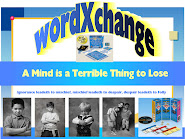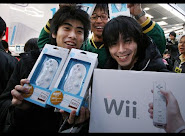HISTORY OF SCRABBLE
Even though it's a word game, the real story about SCRABBLE Brand Crossword Game is numbers. One-hundred million sets sold world-wide. Between one and two million sold each year in North America. And, of keen interest to the legions of passionate players, somewhere over 147,000 words to be used in their scoring arsenal.
The story of the game's evolution from underground craze to cultural icon is as American as, well, SCRABBLE.
Alfred Mosher Butts, an out-of-work architect from Poughkeepsie, New York, decided to invent a board game.
Analyzing games, he found they fell into three categories: number games, such as dice and bingo; move games, such as chess and checkers and word games, such as anagrams.
Attempting to create a game that would use both chance and skill, Butts combined features of anagrams and the crossword puzzle.
First called LEXIKO, the game was later called CRISS CROSS WORDS.
To decide on letter distribution, Butts studied the front page of The New York Times and did painstaking calculations of letter frequency. His basic cryptographic analysis of our language and his original tile distribution have remained valid for almost three generations and billions of games played.
Established game manufacturers were unanimous in rejecting Butts' invention for commercial development. Then Butts met James Brunot, a game-loving entrepreneur who became enamored of the concept.
Together, they made some refinements on rules and design and, most importantly, came up with the name SCRABBLE, a real word which means "to grope frantically".
The game was trademarked SCRABBLE in 1948, and the Brunots rented an abandoned schoolhouse in Dodgington, Connecticut, where with friends they turned out 12 games an hour, stamping letters on wooden tiles one at a time.
Later, boards, boxes and tiles were made elsewhere and sent to the factory for assembly and shipping.
The first four years were a struggle.
In 1949, the Brunots made 2,400 sets and lost $450. As so often happens in the game business, SCRABBLE plugged along, gaining slow but steady popularity among a comparative handful of consumers.
Then in the early 1950s, as legend has it, the president of MACY's discovered the game on vacation, and ordered some for his store.
Within a year, everyone "had to have one" to the point that SCRABBLE sets were being rationed to stores around the country.
In 1952, the Brunots realized they could no longer make the games fast enough to meet the growing interest.
They licensed Selchow & Righter Company, a well-known game manufacturer founded in 1867, to market and distribute the games in the United States and Canada.
Even Selchow & Righter had to step up production to meet the overwhelming demand for the SCRABBLE game. As stories about it appeared in national newspapers, magazines and on television, it seemed that everybody had to have a set immediately.
In 1972, Selchow & Righter purchased the trademark SCRABBLE from Brunot, thereby giving them the exclusive rights to all SCRABBLE Brand products and entertainment services in the United States and Canada.
In 1986, Selchow & Righter was sold to COLECO Industries, who had become famous as the manufacturers of the Cabbage Patch dolls.
Three years later, COLECO declared bankruptcy, and its primary assets--most notably SCRABBLE and Parchesi--were purchased by Hasbro Inc., owner of Milton Bradley Company, the nation's leading game company.
Today the game is found in one of every three American homes, ranging from a Junior game to a new CD-ROM with many versions in between, including standard, Spanish, Deluxe Travel and Deluxe with turntable.
A special commemorative edition was created in 1998 to celebrate the 50th Anniversary of the SCRABBLE trademark.
Competitive SCRABBLE is widely popular much in the manner of chess and bridge.
Every other year a National SCRABBLE Championship is held in a major U.S. city, and on alternate years the World SCRABBLE Championship is hosted between the United States and London. The 1997 WSC in Washington, D.C. attracted players from 36 countries.
In addition, the National SCRABBLE Association sanctions over 150 SCRABBLE tournaments and more than 200 clubs in the U.S. and Canada every year. A roster of clubs is part of a membership packet.
Alfred Mosher Butts enjoyed playing SCRABBLE with family and friends to the end of his life. He passed away in April, 1993 at the age of 93.
For more Scrabble news and information visit:
http://www.hasbro.com/default.cfm?page=ci_history_scrabble

 2. Sega Superstars Tennis
2. Sega Superstars Tennis









